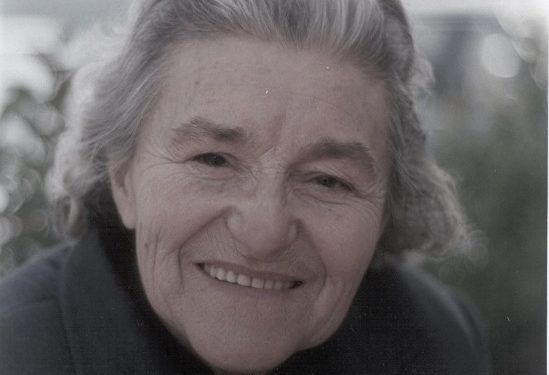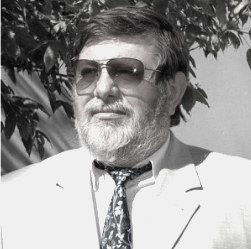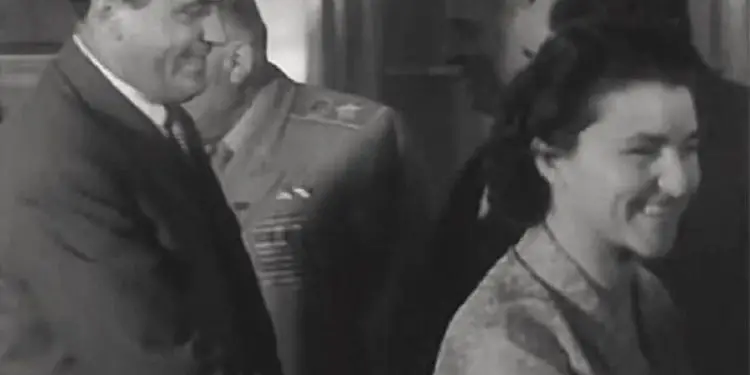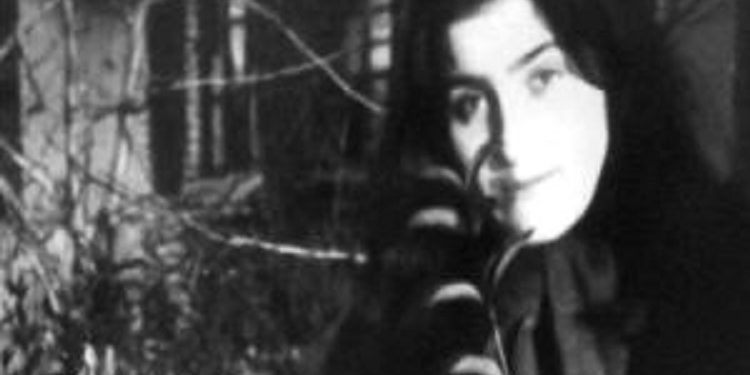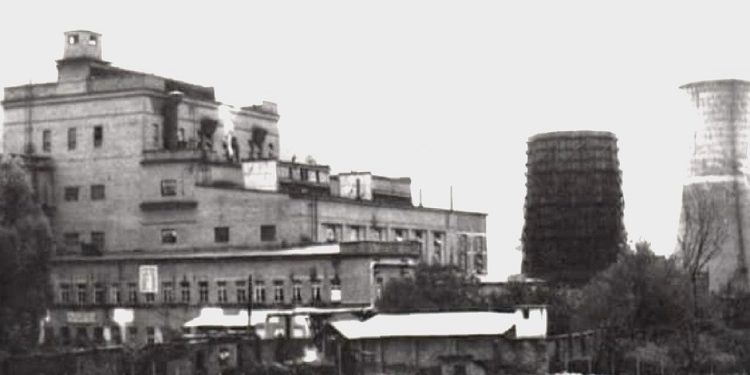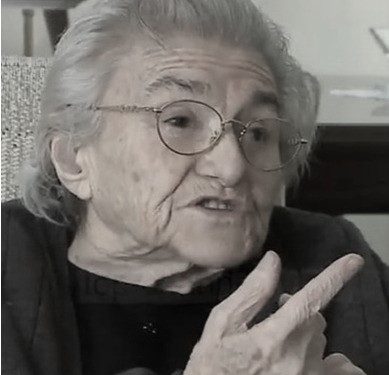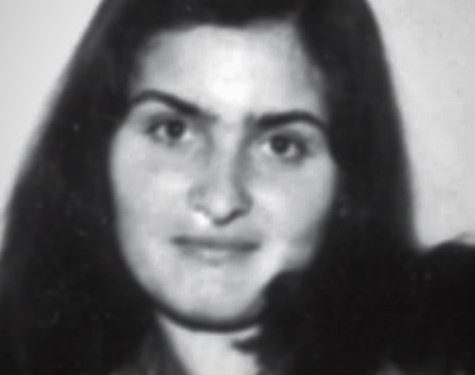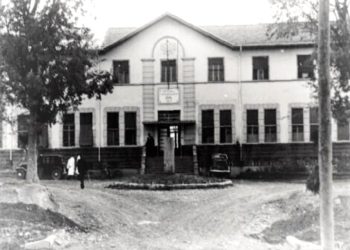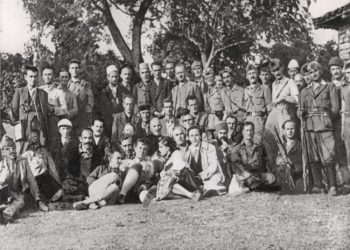By Aleko Likaj
Second part
Memorie.al / They lowered the coffin to the ground for a moment. They had crossed the threshold of a house that looked more like an old barangay, behind the city police station, where they had been eavesdropping for years. Two women moving towards the door. One of them locked the lock and put the key in the pocket of an old black jacket, stained with ink. The other woman searched for something in the bag she carried on her right shoulder, then approached the head of the coffin. The man who was there, whose thin mustache could be seen in the distance, made a sign of refusal. From the window of the bedroom, leaning on the ledge, I saw “Zuk” – a gray one from the Municipality of Cërriku. Together with the driver, a worker in overalls covered in lime and plaster, they opened the back of the car, which looked very old. They stood there. . Maybe someone from afar, from an angle I couldn’t see, ordered them. It had to be a shadow. Maybe the new Security guard newly arrived in that small town, who had taken it upon himself to replace the face – the red man, Karlo, who had been tracking Liri Belishova and her daughter, Drita Çomo, for more than three years.
Continues from last issue
– “In the beginning, I was Liri Belishova’s companion for several years, there at the Second Directorate. Hey…! – He sighed and shook his head again. Then he stood for a moment, as if to recall the distant memory. – “After changing I was completely transformed. I haven’t seen him since. She was also a brave partisan. The lady’s wife. Then… he broke it…! Women’s work. Long hair, short minded, as they say. But friend Enver spared him. Sin”!
The mercy expressed by my father’s friend seemed completely inappropriate at that moment. It seemed to me like a Christian mercy. I had the opinion that Liria, more than her “mistake”, had served in the chessboard of Albanian politics, as a figure that had to be “eaten”, in order to realize, then, a bluff against the opponent, who was playing with colored stones other. For a “King chess”, that we would not miss. The tale of “Hurshov”, which was told at the meetings of the Democratic Front in our neighborhood, seemed to me like that of Red Riding Hood.
He had set out from China to meet his grandmother – Enver, to bring her a basket of news and, on the way through the forest, the wolf (the Soviet revisionist leadership of that time) had appeared. They even wore the grandmother’s hat or mask, with which they tried to imitate her, to get what was inside the basket, so the Chinese news. In fact, Enveri was waiting for them. In the end, the wolf Nikita or, Kosygin or Brezhnev, ate the little girl…! However, this was just a fairy tale.
Summer was long gone and September that year was incredibly warm. I was sick with the “mumps” and that day I had not gone to class, there, in a village, behind the hills and lakes of Dumre. I had received a medical report from Xhevdet Xhelua, a doctor, also with a cen in his biography, because of his brother, the former general, who had died in Bureli prison. But he could not be beaten at home. Despite the temperature, I decided to go there from the City Library: a room on the second floor of the cinema, where you could find everything, since people passionate about books had worked there for years.
It was late in the day and there were no other readers there. The librarian, Liri Spaho, a neighbor of mine and a friend of my older sister, was telling me about the book “The End of the Etruscan Mystery”, for which an instruction had arrived: to remove it from circulation. Its author, a French Jew, who had also been in Albania and was received by Enver Hoxha himself, was already among the detained. He also showed me the list, which included the banned books.
Liri Belishova was given at the door. It seemed completely released. In fact, the first impression I got, as soon as I took a look, was about tears. She should have cried. His eyes were red, his cheekbones too. He had a hazy look that didn’t express anything. He raised his hand and ran it over his short, half-grey hair. He stood for a moment in thought. Maybe he regretted entering that door. He clenched his left index finger as if to say something.
– “Order, Liri” – said the librarian and stepped forward.
The detainee of Cërrik took another step towards the counter where the book was served. In the middle was the employee of the institution.
– “I have come…I have come…”, – the voice was timid as if it came out with difficulty from a deep, invisible hon.
– “I don’t know if you have the gradebook. It was somehow in the form of a notebook or a book that was previously used by schoolchildren”.
The librarian shrugged. He glanced at the large bookshelves, and then shook his head.
– “I do not know. They didn’t catch my eye. Never. I know that we had it at school when we were continuing it, a few years ago, but…! Why do you want it?”
– “Ah! – did the other. – Why am I looking for it?! In the end, there were school rules, as well as duties and rights for a student who follows them. They are taken from the legislation and ordinances of the Ministry of Education”.
– “I’m asking Aleko once, don’t you have any copies of this booklet” – said the librarian and turned to me who was sitting at the first desk, near the window. Even Liri Belishova gave me a tired look.
I assured him that I had. Even a memory from school years and I promised to bring it to the library the next morning. To give it to Liberty it was out of the question. It was dangerous, which even she did not accept. The library belonged to everyone and Liria could come there without even a problem, as she had done up until that moment. In fact, she read regularly and even had a reader’s card there.
In an instant she seemed to change her mind.
– “What if I take it in vain” – he said, he sighed again.
– “I don’t understand you – the librarian of Cërrik addressed him. – Why should you”?!
– “Ah”! – The internee did again, and this time her eyes were moistened by the tears that slid down the cheekbones, which had caught wrinkles. There was no time to erase them.
– “But why didn’t you take me to the others, but left me, my Lira, to suffer like this. It’s so terrible. It cannot be tolerated in the child. They denied the matura to Drita. She took it two months ago with good results. They told him that he did not do the physical work. He did not go to action, for a month, with the gymnasium. They didn’t take it themselves, since to go there, for the Light; permission had to be obtained from above. The director told me this morning that the girl had failed the graduation and that she would not be called finished.
I’m sorry, because the girl is suffering a lot at home. There are tears all lunch. How can I calm him down! Ah! May the mother not be”!
Then he hastened to take out a handkerchief from the pocket of his black jacket and was instantly ashamed. He turned his head to the side and wiped away the streams of tears that had left traces on his cheeks like exhausted streams. Lira brought her chair closer to him and the newly arrived woman started her day again.
I felt really bad. I moved from the place and directed my steps to the internee. We were very close, for the first time in that city, even though we had been neighbors for years, very close. I put my hand on his shoulder. I knew that this would have consequences, for me and my family, my parents. Maybe my future as a person, but also as a creator, could be questioned. At that time, I had published two books for children, at the “Naim Frashëri” Publishing House. I said something to calm him down. Likewise Lira.
– “We are neighbors, my Liri, and we do not wish you harm, no”! – The librarian spoke to her as a friend, even though she was four dozen younger. – “Ishallah … and things will be arranged better.” But also for Drita, who has gold, there will be a good day”.
– “What a good day… black girl, how did they treat us like this”?!
Liria seemed to take a deep breath and after a moment got up to leave.
– “Excuse me. Why do you have to listen to my troubles…?! Thank you for the courage you gave me. My work has been seen on time. Maqua in prison. I am here with two children, the only ones, without any hope, without anyone. Torture forever…! Don’t let anyone suffer like me! I was left as a single cuckoo”!
With his body slightly bent, he went to the door. He stood there for a moment and turned his head towards us. Apparently he regretted it because he looked like he wanted to say something.
– “Goodbye”…! – he said then and silently passed through the semi-dark corridor to go downstairs, to the lobby of that culture house, the only one in that small workers’ town.
– “We were lucky – said Lira. – No one came to us. If they saw us…?! For you, Leko, it would be even worse, because I could be excused for book work”.
– Then he put his lips on the gas and in another moment said: – “You saved this time”!
But I realized that Lira had been communicating with Liri Belishova for a long time, they knew each other well. Maybe even the books, but the librarian had become, so to speak, a small window, through which the internee could see another world.
The news of Drita Çomo’s illness came quite suddenly. She immediately became the topic of the day in the families of Cërrik. The brother, Petriti, was a soldier. He was missing for some time in the surroundings of the city, even though there were die-hard fans who passionately commented on the sport of the Albanian championship, but also the “Champions League”.
Liria herself was rarely seen in the city. He only went out when he needed to get some food for the sick girl. She looked more worried and sad as a mother. He envisioned the disaster, which would be truly tragic and unbearable for him.
– “Liberty needed this too! – said my mother. – How will I endure it?!
Father always acted indifferent. As if he hadn’t heard anything! Every time there was talk of the city’s internees, who passed in front of the window of our house, to report to the police, my father was as silent as the grave. Maybe he didn’t want any trouble. We had just released the younger brother from prison. He had been a soldier in Rinas and had been caught sleeping during night duty, along with two other guards. They had accused them as a group.
After a few months, in Torovica and Valias, my father had managed to secure a conditional pardon for Agim, even though he faced another 15 months in prison. We kept it a secret at the time. The problem was not only with our neighbors. The police had to know something. The most informed should have been the operative, but also the follower of Liberty, who had special duties…! The father had become like a deep well, which could hardly draw water.
Three months later I went to the city polyclinic. As soon as I came home, they told me that my father had fallen ill and had been taken to the polyambulance. I was worried. I hurried and in one breath climbed the stairs to the second floor, where the various doctors were visiting. In the semi-dark corridor, I made out the silhouette of a girl, sitting timidly and leaning against the wall. At her feet was a long bench, one of those used in flower gardens, but painted brown. I didn’t recognize him at first. I had just climbed the stairs, in one breath, that deep afternoon, where the patients were absent.
– “Do not be afraid. Uncle Zequa is fine. Doctor Xhevdeti is visiting him. Your mother is also in there.”
I hadn’t paid attention to the girl leaning against the wall, but her soft voice, radiating only kindness, made me stand still. I would never have thought that I would meet Drita Chomon in these situations and in such a place. I was ahead of her. From inside the visiting room I heard the voice of Xhevdet Xhelo, who was Halim’s brother, the former general. He always joked with my father, since his father had been Halim’s friend since the partisan war.
He even became his companion for him a few years after liberation. I calmed down. I looked at the girl who was still in her position against the wall and I was glad she said those words to me. For a moment I thought I lost it. I didn’t know what to say to that girl about whom the whole town was already talking about because of her illness.
– “I will get a prescription from doctor Xhevdeti” – he said in a low and intimate voice, as if we had known each other for a long time.
– “You are a poet – I told him and felt that I was moved. – I read you a poem”.
I noticed that he put his lip on the gas. Then he was silent for a moment. I found it unbelievable, by my definition. You really didn’t believe my words?!
– “I don’t write.” I read, yes.”
– “I came across a poem of yours. I don’t remember under what circumstances, but I liked it.”
– “I don’t believe it would have been mine, since I didn’t write.”
She could have continued the lecture she was about to draw and deny the verses I had once read, but a creak at the door seemed to startle her. He even snuggled closer there against the wall and in the semi-darkness of that corridor.
Xhevdet Xhelua showed up at the door wearing a doctor’s white blouse and a stethoscope slung over his left shoulder. There was a sound like thunder.
– “We have the journalist here. It is worried. Get out, Zeqooo! He taught the children. Quit smoking and you have nothing. do you want to live Get rid of the Moors”!
His mother also came out after him. The Doctor had already approached the Light. He was asking about the cure and medicines. I wasn’t listening to him anymore. It turned out mine too. He had a severe asthmatic attack at home.
– “How are you, my maid”? – asked my mother when the doctor returned to his visiting room to prepare the prescription for Drita Chomon. The other seemed to answer him, but it was not known what she said.
He put his arm around his father and went to the stairs.
– “Stay, my wife, leaves us alone. Even the walls have ears here” – said my father, lowering his voice in the last words. He looked around and slowly went down to the first floor.
“Light that comes from the abyss”, is the book of poems by Drita Çomo, which came into the hands of the reader, after the fall of the dictatorship. It seemed to me like a distant vision of a life that no longer exists. The drama of a teenager, of a girl who suffered an innocent “guilt”, in a time of absurdities. Maybe since her birth. Harrowing stories of persecution, gnawing at the strange gears of a murderous mechanism, every minute, day and hour…! It was a time…!
One evening without lights, a year later, after the overthrow of the dictatorship, I was rushing to return to my home, in Elbasan. Those were turbulent times. From the corner of the bank, where four roads intersect, in the center of the city, in front of the City Hall, a voice that came from the darkness made me stop. I made out the shadow of a hunched man, who slowly came near me. I understood that he wanted me to help him. He asked me how he could go to the old post office. That’s all. The voice sounded familiar, but I couldn’t remember that moment.
As he approached, I noticed the silhouette of a bag that was half hanging, and then the portrait of the man of the night reminded me of Liri Belishova.
– “Wow! – She said in surprise, raising her voice. – The eldest son of…! How do I have you, my son”? – He approached to shake my hand.
– “Can you take me a little bit to the old post office, because I can’t find my way around.” It’s night now, too. I’m old and impossible, as you know.”
He asked me for my help, after he had asked me in turn about all the people of the house, there in Cerrik. I took it. I knew that she would come to her sister-in-law, who worked as a surveyor, in the former Elbasan Municipality, but I did not see her. I knew she lived there. In fact, it was the woman who had accompanied her daughter’s coffin a few years ago.
Liri Belishova should have come for this job: to “meet” her daughter at the Cerriku cemetery. She was still there, on a plateau, at the entrance of the city, when she comes from Elbasan, while the family had already settled in Tirana. This happened after the fall of communism.
I saw Drita Çomo’s grave several years later. As a journalist, I happened to be there when the former owners had blocked all the funeral processions of Cërrik. They did not allow any more burials to be done on their lands. Trouble with the City Hall.
I don’t remember who put the book of Drita Çomo’s lyrics in front of me. I was surprised, but also happy at the same time.
To be honest, it never occurred to me that the author of a May lyric, who wrote with such feeling: “A moonless night”, which had moved me so much at that time, would see her on the front page of a the book. It would thrill me again, with the same intensity, as it did then, a decade and a half ago.
It brought back a distant memory. The story and life of a girl who lived together with her family, the most vicious persecution we left behind. Inside it is life. It is the unrepeatable drama, not only of a handful of people, who appeared on the black lists of deportations and macabre punishments, but of a nation. We have lived the folly of our false grandeur.
It seems to me that Drita Çomo, there, has said many things, if not to say, all of them. What we have missed, but also the life we lived differently. I don’t know, but ever since then I’ve thought that my “cut mouth” neighbor should have kept a diary. He kept a diary to say the unsaid, which he could not say, but also for those of us who had “freedom”, which we basically lacked. They had killed us and they killed us every day, every hour and every minute.
“The light that comes from the abyss” is, in essence, the diary of the days that are gone, but also of those that are to come. Now, after that, I often lose my mind and like in a celluloid film, those years pass by, those events, which really make me sad, and in front of my eyes appears the girl named Drita Çomo, with a smile, like a carnation on her lips. Open and big world. Sensitive, like a blade of grass…!
He had just spent twenty springs of a life, within the four walls of the house. Her portrait and image still can’t get out of my mind…!
But the state, at that time, had invented a mechanism, without guns and bullets, without electric chairs: isolation and solitude. Both kill you equally. This mechanism unfortunately worked and took dozens and hundreds of innocent lives. Even Drita Chomon. She had many songs, welling up within her fragile chest.
…and the last swan song:
“Being superfluous, foreign everywhere
Uninvited friend in the world, shadow
Without a memory to make you suffer
Without a hope, for what is to come…!
And then…the abyss…where they dropped him.”
Instead of the Epilogue
It was the month of March. At the beginning of spring, here in distant Bordona, two years ago, I went to the largest bookstore in the Akhtena region, “MOLLAT”, to follow the new publications. Of course also new authors. Instinct, but also nostalgia for my creative friends in the field of letters, led me to the Albanian literature stand. A few months ago, I had met Besnik Mustafa in the cinema of a small town.
We had talked and discussed, like two old acquaintances, but also like two “real Albanians”. At that time, the library of this city had organized a series of meetings with French readers and I was glad that an Albanian writer was handing out autographs of his books in the French language. In “Mollat”, I had also found his books, along with the novels of Kadare, but also of Fatos Kongoli, my old friend.
As I searched for other authors, my fingers were fixed on a finer book. I carefully pulled it from the shelf marked: “Albanian literature” and carefully read: “Cette leur qui monte de l’abime”. Tradui de l’Albanais par Edmond Tupia. (Monaco), Paris 2004. 139 p.
A month later, in the same place, in ‘Lettre Albanais’ “Apples”, ten copies of Drita Çomo’s book were missing. Along with regret, I also felt a sense of joy: they were already in the hands of the French reader. Mjellma had something to show in her last song. Memorie.al




